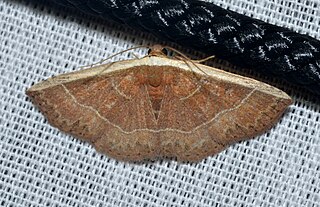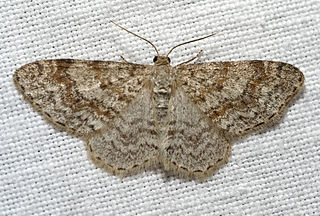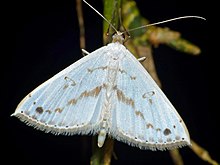
Spilomelinae is a very species-rich subfamily of the lepidopteran family Crambidae, the crambid snout moths. With 4,135 described species in 344 genera worldwide, it is the most speciose group among pyraloids.

The Pyralinae are the typical subfamily of snout moths and occur essentially worldwide, in some cases aided by involuntary introduction by humans. They are rather rare in the Americas however, and their diversity in the Australian region is also limited. Altogether, this subfamily includes about 900 described species, but new ones continue to be discovered. Like many of their relatives in the superfamily Pyraloidea, the caterpillar larvae of many Pyralinae – and in some cases even the adults – have evolved the ability to use unusual foods for nutrition; a few of these can become harmful to humans as pests of stored goods.

Autoba is a genus of moths of the family Erebidae. The genus was erected by Francis Walker in 1863.

Oruza is a genus of moths of the family Erebidae erected by Francis Walker in 1862.

Derambila is a genus of moths in the family Geometridae first described by Francis Walker in 1863.

Cyclophora is a genus of moths in the family Geometridae. Many species are referred to as mochas in reference to their colouration, primarily in Europe.

Eucyclodes is a genus of moths in the family Geometridae. According to the Catalogue of Life as of March 2017, only E. buprestaria is included in the genus. Other species are categorized into Chloromachia.

Hemithea is a genus of moths in the family Geometridae erected by Philogène Auguste Joseph Duponchel in 1829. In 1999 there were about 31 species in the genus.

Herochroma is a genus of moths in the family Geometridae. The genus was described by Charles Swinhoe in 1893.
Hypulia is a genus of moths in the family Geometridae described by Swinhoe in 1894.

Mesothea is a monotypic moth genus in the family Geometridae described by Warren in 1901. Its only species, Mesothea incertata, the day emerald or plain emerald, was first described by Walker in 1863. It is found in North America.
Noreia is a genus of moths in the family Geometridae first described by Francis Walker in 1861.

Ornithospila is a genus of moths in the family Geometridae described by Warren in 1894.
Panagropsis is a monotypic moth genus in the family Geometridae described by Warren in 1894. Its only species, Panagropsis equitaria, described by Francis Walker in 1861, is found in South Africa.
Parasynegia is a genus of moths in the family Geometridae first described by Warren in 1893.

Semiothisa is a genus of moths in the family Geometridae. It was erected by Jacob Hübner in 1818.

Sterrhinae is a large subfamily of geometer moths with some 3,000 described species, with more than half belonging to the taxonomically difficult, very diverse genera, Idaea and Scopula. This subfamily was described by Edward Meyrick in 1892. They are the most diverse in the tropics with the number of species decreasing with increasing latitude and elevation.

Oenochrominae is a subfamily of the moth family Geometridae.

Asthenini is a tribe of geometer moths under subfamily Larentiinae first described by Warren in 1893. The tribe has been combined with Eupitheciini in the past, most notably by Jeremy Daniel Holloway in his work The Moths of Borneo.

Eupitheciini is a tribe of geometer moths under subfamily Larentiinae, often referred to as pugs. The tribe was described by Tutt in 1896.
















